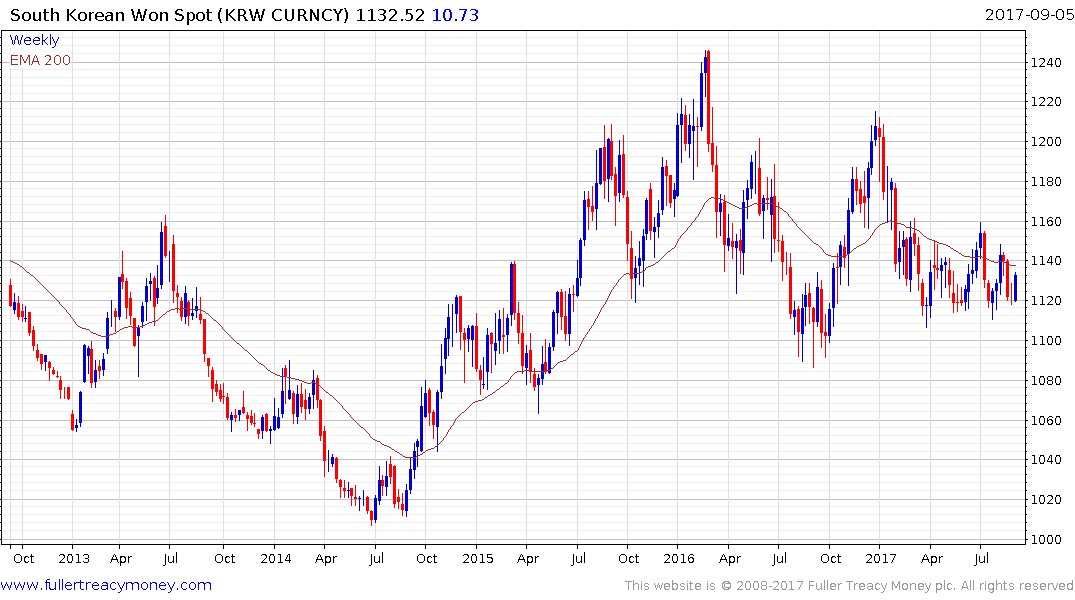North Korea Q&A Summary
Thanks to a subscriber for this report from Maybank which may be of interest. Here is a section:
The North Korean government fully knows that it cannot afford a war against South Korea, let alone the US as that would spell the end of the KJU regime. The strategy is to blackmail the US and other neighbouring countries into as many concessions as possible through brinksmanship sabre-rattling. The North Korean leadership is calculating that the US (G1), China (G2), Japan (G3) and South Korea (G10) cannot simply go to war over North Korea (G197) as they collectively have too much to lose.
North Korea, on the other hand, has relatively speaking very little to lose from escalation tactics and will continue to threaten the US and South Korea. The calculation also is that Donald Trump needs a symbolic win abroad and that both sides could benefit from a ‘middle ground compromise’, either for real or perceived. That would be most likely in the form of North Korea halting its nuclear programme in exchange for lifted sanctions or direct cash support. However, North Korea is highly unlikely to give up its nuclear arsenal.
Here is a link to the full report.
North Korea exists because China’s self-interest is served by having a series of communist leaning buffer states around its border. That doesn’t mean the two countries necessarily see eye to eye on every topic but it does mean there is what might be described as a symbiotic relationship between them.
North Korea’s administration knows the economy is in a tenuous position and has some justification in feeling paranoid. The policy of blackmail has worked for decades because they know both the political and economic cost of regime change outweighs what they are asking for. The stakes have been raised by their acquisition of nuclear bombs but the rationale for brinksmanship is the same.

The South Korean Won has been relatively staid over the last six months suggesting the market is unconvinced the uptick in geopolitical stress is going to overly affect the outlook for the economy.
The fact the South Korean or indeed Japanese markets are behaving normally is a calming factor but the North Korean strategy is dependent on the status quo remaining intact and considering how much change has occurred in the last 18 months that represents a source of uncertainty. Therefore since the region attaches no risk premium to a war, it represents a potentially large disruptive influence if in fact relations do deteriorate.
Back to top

